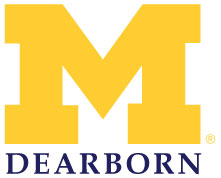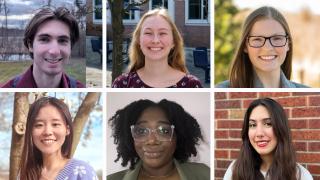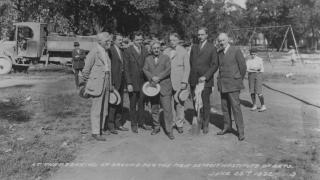

The Integrated Learning and Community Partnerships Office (ILCPO) awarded 17 grants to faculty members to teach academic service-learning courses, engage in the advancement of teaching and learning practices, and conduct community-based research with community partners. The grants totaled $36,255.
“Our staff and faculty members are creating highly collaborative, engaged courses and projects,” said Ismael Ahmed, associate provost for Integrated Learning and Community Partnerships. “We are delighted to be supporting them in their efforts.”
ILCPO is currently accepting Academic Service-Learning Course Designations for Fall 2012 through July 20, 2012.
Below are summaries of the projects funded:
Academic Service Learning Course Designations
Pamela Aronson, associate professor of sociology
Students in Sociology 497 learned to conduct an applied research project related to “the challenges facing students who graduate during the great recession.” Students shared their information with the university community.
Brian McKenna, assistant professor of anthropology
In light of the meltdown at Fukushima, Japan, and as Detroit Edison plans to build a new Fermi 3 reactor, students who took Anthropology 325 conducted a critical ethnography of the Fermi Nuclear Plant.
Susan Sheth, lecturer II in communications
Continuing a partnership with Vista Maria, students in Communication 460 assisted in launching the community organization’s branding campaign. Students have worked since Winter 2011 to assist and develop press releases, PSAs, planned an awareness event and have completed blog interactions.
Advancement of Teaching and Learning Funds
Pamela Aronson, associate professor of sociology
Students in Sociology 497 will learn to conduct an applied research project related to “the challenges facing students who graduate during the great recession.” Students will share their information with the university community. The grant will allow for the purchase of digital recorders for in-depth interviews.
Suzanne Bergeron, director of women’s and gender studies
Bergeron will facilitate a series of workshops on integrating transnational engagement into the curriculum in order to effectively teach our students how to be self-reflective about how power dynamics operate in talking about other places and peoples, and further rather than interrupt mutual understanding for effective global citizenship.
Francine Dolins, assistant professor of psychology
Dolins will bring in noted scientists for a speaker’s series in animal behavior, an emerging area of interest to students and faculty in health, biology and psychology. The series will include presentations on topics such as: the evolution of human-dog relationships; social cognition in hyenas; communication in nonhuman primates; problem solving in bird species; and spatial or social learning in insects.
Susan Everett, associate professor of science education
Everett received funding to bring Dr. Fred Goldberg, professor of physics at San Diego State University, to campus as a guest speaker (through Inquiry Institute, Department of Natural Sciences and AAPT). Goldberg's talk will provide an opportunity for faculty from both natural sciences and the School of Education to learn about the research supporting his innovative approach to teaching science to undergraduates.
Pat Hartshorn, lecturer III of biological sciences
This grant will bring Dr. Diane Ebert-May, an award-winning biology professor, to campus to discuss effective active-learning strategies for the natural sciences. An underlying goal is to begin a shift toward more active learning in the natural sciences lecture halls.
Seong Hong, associate professor of early childhood education
Hong’s grant will fund a workshop series for faculty to create their own digital stories, learn about best practices for having students create digital stories, and identify campus resources or structures that could be used to assist with digital storytelling in the classroom.
Gail Luera, associate professor of science education
Luera will purchase a classroom set of handheld GPS units to enable faculty and EIC program leaders to teach basic mapping skills while fostering a connection to and demonstrating knowledge of the local environment. Once students have mastered basic skills, they will create their own waypoints using local points of interest and apply what they have learned about mapping and science knowledge to their community via the Internet.
Maureen Linker, associate professor of philosophy
Students participating as Honors Transfer Innovators will collaborate on real-world projects like developing: a “cultural passport” for Detroit area museums and events; a project database to help connect faculty, staff, and students with community partners; and a “green beings passport” to educate students about the environment and healthy choices.
Bruce Pietrykowski, professor of economics
This grant will be used to acquire Regional Input-Output Multipliers (RIMS II) created by the U.S. Bureau of Economic Analysis. The use of RIMS II data will allow students to explore the impact of economic development projects on the local and regional economy.
Liz Rohan, associate professor of composition and rhetoric
This teaching and learning fund will be used to host a panel of educators, artists and writers in the local hip hop industry and will be followed by a performance of the hip hop group 5ELA. Members of the panel will discuss how popular culture can be used as a critical learning tool to interest young people in not only music, but reading, writing, composing and community activism.
Community-Based Research Seed Grants
Paul Draus, associate professor of sociology
Draus’ research will examine the impact of rapid depopulation on the Oakwood Heights community, located in the far end of Southwest Detroit, as the result of a major buyout of homes by Marathon Petroleum Corporation (MPC).
Bruce Pietrykowski, professor of economics
The goal of Petrykowski’s project is to develop the local capacity to conduct participatory action research (PAR, a research method that is gaining in popularity in the social and behavioral sciences.
Juliette Roddy, assistant professor of public policy
Roddy’s project will capture data concerning the lives of those exiting correctional institutions and attempting to reintegrate in the City of Detroit. The goal of this study is to develop a mixed-method approach with potential to explore the dynamic interaction of individual, contextual and community-level factors associated with long-term recovery and successful social reintegration.
Emily Wang, international services representative
The learning partnership between UM-Dearborn and ACCESS’ Family Literacy Program will create new educational pathways into youth and adult literacy education. The goal is to provide educational sources and support the literacy programs, tailoring the resources to the challenges of literacy learning and revitalizing low-income and immigrant communities.




